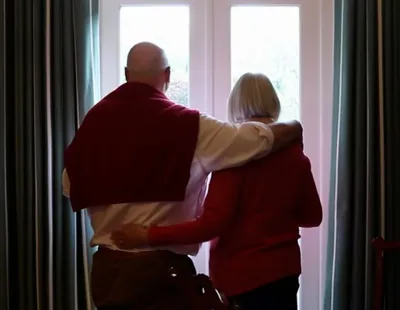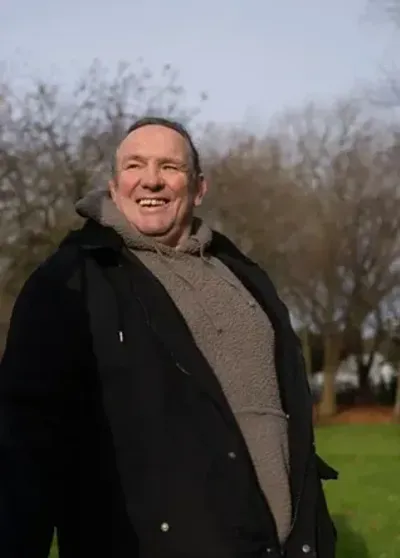Community, mental health, and the places we belong
14/05/2025
In a world where the internet is boxing individuals in their own corners more than ever, James, Director of Communications and Campaigns at Rethink Mental Illness, makes his case to increase opportunities for social connection.
I’m what’s known as a genuine mockney. Born in London, I spent my formative years growing up in South Norfolk before returning to the capital in my early twenties - where I’ve lived ever since.
Growing up in the countryside, there was a familiar stereotype: cities were isolating, cold, and anonymous, while the countryside was warm and welcoming - a place where people knew each other and would stop to chat or say hello. A well-worn “known known” is that no one talks to each other on the Tube in London (and, in fairness, it’s true that most Londoners don’t strike up conversations with strangers underground).
Fast forward a few decades, and that stereotype hasn’t held true for me. Possibly helped by being a parent - and the default networks that come with it - I’m lucky to feel that my part of the city has a real sense of community. I know my neighbours. It’s hard to leave the house without someone saying hello.
We’re especially fortunate to have a wonderful local pub at the heart of it all, where everyone is welcome. Every time I go in, I’m struck by the diversity of the people inside and the genuine warmth it brings to the neighbourhood. And of course, London benefits from a transport infrastructure that allows people to move around the capital with relative ease - something that simply doesn’t exist in many other parts of the country.
-
Where do you go to feel part of a community?
In contrast, I recently visited South Norfolk to see family, and something struck me -something that’s been unfolding for years but is now hard to ignore. Pubs closed or only open a few days a week. A town centre with three supermarkets side by side, while half the shops on the high street are boarded up. And I found myself wondering: if you don’t have children or a regular place of worship, where do you go to feel part of a community?
In a world where social media and the internet make it easier to stay within our own echo chambers, community matters more than ever. It gives us a place to belong - a shared space to coexist, even with people who aren’t like us. That’s not just a warm, nostalgic notion. It matters for our mental health. We know that isolation is a significant driver of poor mental health outcomes.
Perhaps now, more than ever, our cities have become hubs of community, while economic shifts have quietly eroded the community life of our towns and villages. And so, on the way home from the countryside, I found myself wondering: what would it take to keep local pubs, shops, and community centres open? What would the benefits be - not just economically, but emotionally and socially - for the communities that rely on them? And what might it take to achieve that?
Of course, social change doesn’t happen in a vacuum. It’s shaped by convenience and economic pressure. It’s easier to shop in supermarkets than to pop to local shops, and often cheaper to have things delivered by multinational corporations. The impact is gradual - until suddenly, it’s stark. Reversing this behaviour may be as futile as King Canute’s famous attempt to hold back the tide (to prove the point that he couldn’t).
-
If we know that social connection supports mental health, could we begin to treat local pubs, libraries, and community centres as preventative health assets - not just nice-to-haves?
But it still leaves the question: if community is so vital to our wellbeing, identity, and sense of connection, what have we lost in the past few decades - and how might that loss be showing up in places like the polling booth?
This isn’t a new insight. Robert D. Putnam explored it in Bowling Alone, using the image of people bowling solo instead of in leagues to symbolise a decline in social capital - with consequences not only for individual wellbeing but also for the health of our democracy.
If we know that social connection supports mental health, could we begin to treat local pubs, libraries, and community centres as preventative health assets - not just nice-to-haves? And is there a case for funding them through the profits of the companies that benefit most from the new economic environment we now inhabit (including the gambling industry)?
In difficult economic times, perhaps it’s time to ask ourselves a bigger question: how do we protect and invest in the institutions that help build social capital - and are we willing to support them at the expense of those that quietly erode it?




